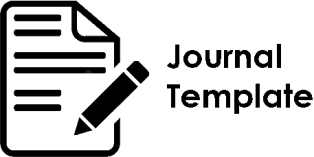Digital Transformation in Islamic Education, Improving The Quality of Teachers in Islamic Education in Padangsidimpuan City
DOI:
https://doi.org/10.29240/ajis.v9i2.12247Keywords:
Digital Transformation, Islamic Education, Technology in Digital Learning EducationAbstract
Digital transformation in Islamic education has become an important topic in improving the quality of education, including in Padangsidimpuan City. Rapid technological developments have had a significant impact on the way of teaching and learning at various levels of education, including Islamic education. This research aims to analyze how digital transformation can play a role in improving the quality of teachers in Islamic education in Padangsidimpuan City. Using qualitative methods, this research identifies the challenges faced by teachers in implementing technology as well as the strategies implemented to optimize the use of technology in the learning process. The research results show that although there are obstacles in terms of access to technology and teachers' digital skills, with proper training and adequate infrastructure support, digital transformation can have a positive impact on the quality of Islamic education in this area. Therefore, it is important for related parties to continue to improve the quality of training for teachers and expand access to technology in Islamic educational institutions.
Downloads
References
Al-Mubarak, R. “‘Transformasi Digital Dalam Pendidikan Islam’.” Jurnal Pendidikan Islam 9(1), 15–3 (2021).
Alhamuddin. . “. ‘Pembelajaran Berbasis MI Pada Materi Pelajaran PAI Di Sekolah Untuk Meningkatkan Kemampuan Berpikir Kritis Anak (Studi Kasus Di SD Islam AL-Amanah Bandung Dan SD IT Buah Hati Jakarta’.” Bandung: UPI, 2015.
Arifin, Z. Pendidikan Islam: Konsep Dan Praktik. Jakarta: RajaGrafindo Persada, hal 51, 2015.
Aziz, Abdul, and Khoirul Anam. “Moderasi Beragama Berlandaskan Nilai-Nilai Islam.” Direktorat Jenderal Pendidikan Islam Kementerian Agama RI, 2021, 131. https://cendikia.kemenag.go.id/storage/uploads/file_path/file_28-09-2021_6152761cdc6c1.pdf.
Fiantika, Feni Rita; Et.al. Metodologi Penelitian Kualitatif. In Metodologi Penelitian Kualitatif. Edited by Yuliatri Novita. Rake Sarasin. Cet.1. Padang: PT. GLOBAL EKSEKUTIF TEKNOLOGI, 2022.
Masril, Mardhiah, Oskah Dakhi, Torkis Nasution, and Ambiyar Ambiyar. “Analisis Gender Dan Intellectual Intelligence Terhadap Kreativitas.” Edukasi: Jurnal Pendidikan 18, no. 2 (2020): 182. https://doi.org/10.31571/edukasi.v18i2.1847.
Multikultural, Jurnal. “BERBAGAI JURNAL KEAGAMAAN.” HARMONI VIII, no. 30 (n.d.).
Nasution, A. Digitalisasi Pendidikan: Konsep Dan Implementasi Dalam Pendidikan Islam. Bandung: Alfabeta, hal 32, 2018.
Nugraha, M. S., Maskah, D. K., & Rohayani, A. “Islamic Ethical Concepts Relevant to Digital Technology.” Proceedings of International Conference on Islamic Civilization AndHumanities., 2023. https://proceedings.uinsa.ac.id/index.php/iconfahum/article/view/1335.
Salsabila, Helminia, Devi Sintya Yuliastuty, Nur Halimah, and Silviatus Zahra. “Peran Generasi z Dalam Moderasi Beragama Di Era Digital,” n.d., 118–28.
Shihab, Q. Membumikan Al-Quran, Fungsi Dan Peran Wahyu Dalam Membumikan Al-Quran. Bandung: mizan, 2001.
Siregar, Santi. “PENERAPAN NILAI - NILAI MODERASI BERAGAMA DI LINGKUNGAN MASYARAKAT DESA AEK BATANG PAYA KECAMATAN SIPIROK KABUPATEN TAPANULI SELATAN.” Skripsi. Universitas Islam Negeri Syekh Ali Hasan Ahmad Addary Padangsidimpuan, 2024.
Suparno, D. Peran Teknologi Dalam Peningkatan Kualitas Pendidikan. Yogyakarta: Deepublish, hal 28, 2020.
Downloads
Published
How to Cite
Issue
Section
Citation Check
License
Copyright (c) 2024 Yanti Helena

This work is licensed under a Creative Commons Attribution-NonCommercial-ShareAlike 4.0 International License.
Authors who publish with this journal agree to the following terms:- Authors retain copyright and grant the journal right of first publication with the work simultaneously licensed under a Creative Commons Attribution License (CC BY-NC-SA 4.0) that allows others to share the work with an acknowledgment of the work's authorship and initial publication in this journal.
- Authors are able to enter into separate, additional contractual arrangements for the non-exclusive distribution of the journal's published version of the work (e.g., post it to an institutional repository or publish it in a book), with an acknowledgment of its initial publication in this journal.
- Authors are permitted and encouraged to post their work online (e.g., in institutional repositories or on their website) prior to and during the submission process, as it can lead to productive exchanges, as well as earlier and greater citation of published work (See The Effect of Open Access).







